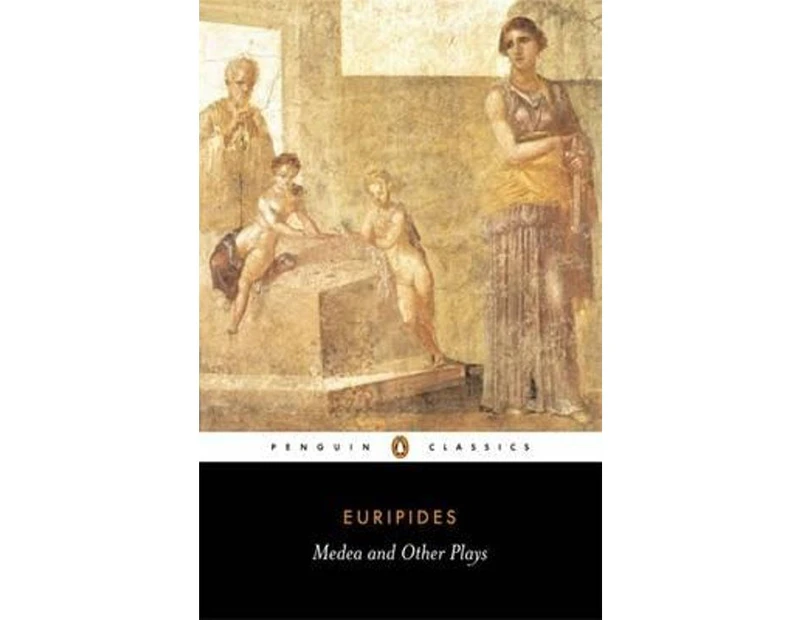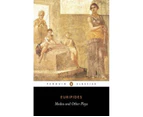Medea and Other Plays : Medea/ Alcestis/ The Children of Heracles/ Hippolyttus

Medea and Other Plays : Medea/ Alcestis/ The Children of Heracles/ Hippolyttus
ISBN: 9780140449297
Publication Date: 5 July 2004
Medea, in which a spurned woman takes revenge upon her lover by killing her children, is one of the most shocking of all the Greek tragedies. Dominating the play is Medea herself, a towering figure who demonstrates Euripides' unusual willingness to give voice to a woman's case. Alcestis, a tragicomedy, is based on a magical myth in which Death is overcome, and The Children of Heracles examines conflict between might and right, while Hippolytus deals with self-destructive integrity and moral dilemmas. These plays show Euripides transforming awesome figures of Greek myths into recognizable, fallible human beings.
John Davie's accessible prose translation is accompanied by a general introduction and individual prefaces to each play.
About The Author Euripides, the youngest of the three great Athenian playwrights, was born around 485 BC of a family of good standing. He first competed in the dramatic festivals in 455 BC, coming only third; his record of success in the tragic competitions is lower than that of either Aeschylus or Sophocles. There is a tradition that he was unpopular, even a recluse; we are told that he composed poetry in a cave by the sea, near Salamis. What is clear from contemporary evidence, however, is that audiences were fascinated by his innovative and often disturbing dramas. His work was controversial already in his lifetime, and he himself was regarded as a 'clever' poet, associated with philosophers and other intellectuals.
Towards the end of his life he went to live at the court of Archelaus, king of Macedon. It was during his time there that he wrote what many consider his greates work, the Bacchae. When news of his death reached Athens in early 406 BC, Sophocles appeared publicly...
